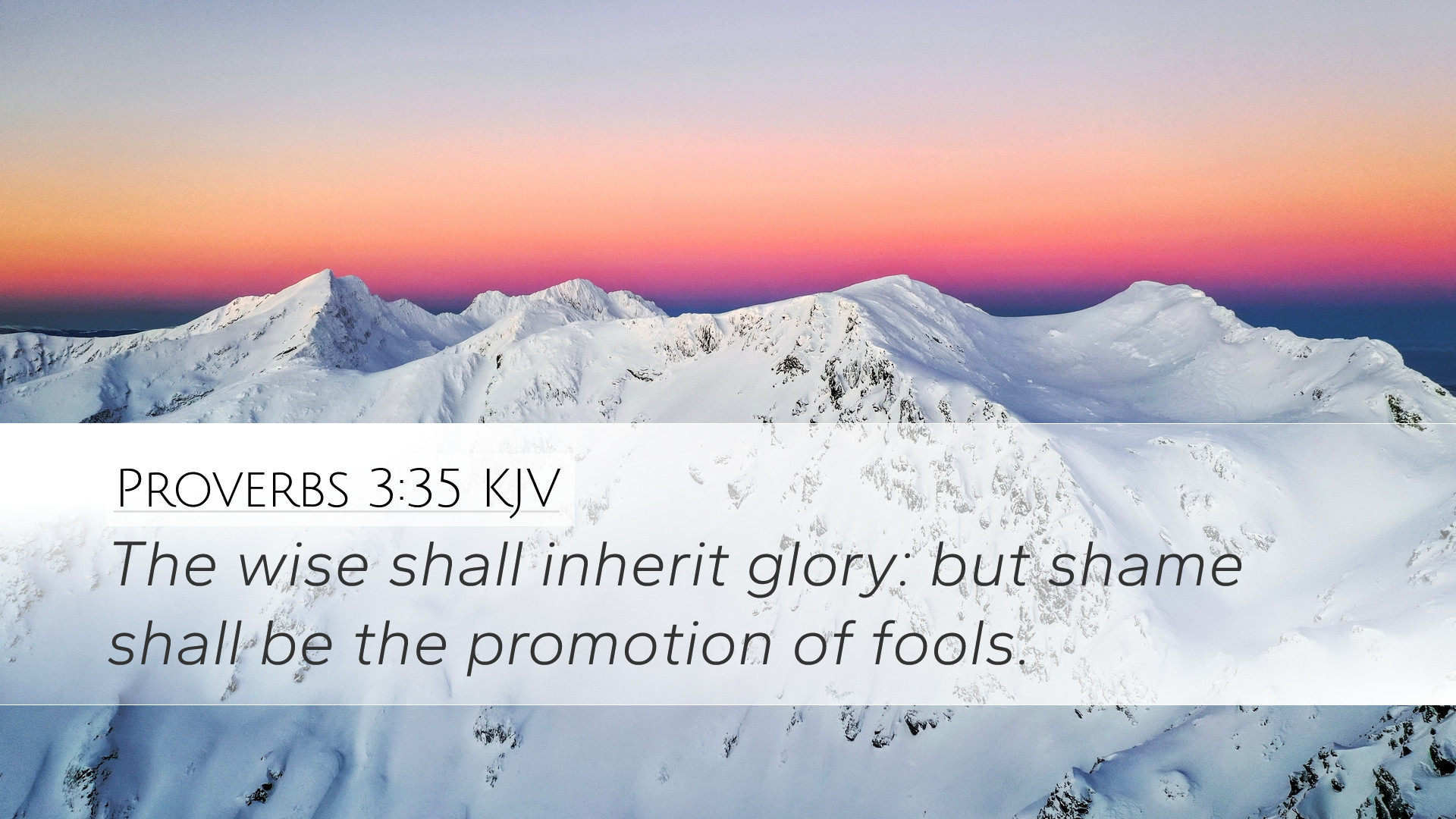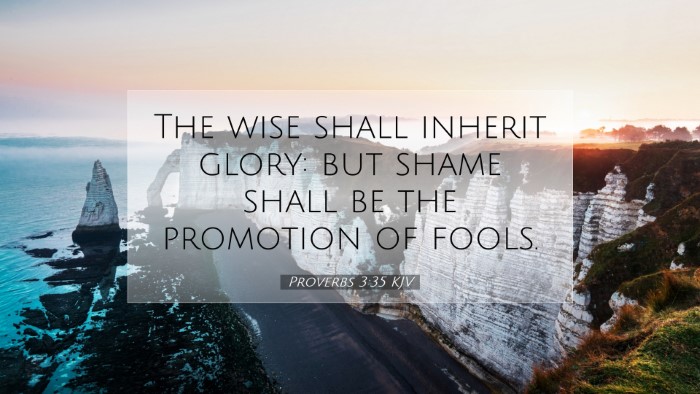Proverbs 3:35 Commentary
Verse: "The wise shall inherit glory: but shame shall be the promotion of fools." (Proverbs 3:35, KJV)
Introduction
This verse from Proverbs serves as a powerful contrast between the destinies of the wise and the foolish. It culminates the teachings in the preceding chapters that emphasize the value of wisdom and the folly of pride and ignorance.
Exegesis
In its simplest interpretation, this verse delineates the ultimate outcomes of wisdom and folly. The "wise" are those who exhibit discernment, fear of the Lord, and adherence to godly principles, while "fools" are characterized by disregard for wisdom and righteousness.
Insights from Public Domain Commentaries
Matthew Henry's Commentary
Matthew Henry emphasizes the reward of wisdom as both a present and future blessing. In his view, the "wise" not only gain respect and honor in their lifetime but also eternal glory in the eyes of God. He notes that this distinction is rooted in the moral order established by God, where righteousness and wisdom lead to honor based on divine principles.
Albert Barnes' Notes
Albert Barnes highlights that the essence of this proverb is twofold: glory for the wise and promotion of shame for fools. He suggests that the wise are distinguished by their understanding, which brings them both esteem among men and a promise of divine blessing. Conversely, fools, characterized by their unwise decisions, ultimately find themselves in disgrace and reproach—a consequence of their choices.
Adam Clarke's Commentary
Adam Clarke elaborates on the Hebrew terms used in the verse, explaining that "glory" (כָּבוֹד - kabod) refers to honor or heavy weight, indicating a state of being esteemed. He contrasts this with "shame," pointing out that the fools' disgrace is not merely a temporary state but a continual one, leading to ultimate loss. Clarke stresses the inevitability of the consequences of one's life choices, whether to live wisely or foolishly.
Theological Implications
This passage invites reflection on the nature of divine justice. The wise, by following God’s commandments, align themselves with the truth that ultimately prevails. The repercussions for folly are stark—shame not only accompanies foolish actions but serves as a reminder of the pivotal choices that lead to such outcomes.
Applications for Christians
- Cultivate Wisdom: The text challenges believers to pursue wisdom actively, knowing that it leads to glory. This pursuit includes engaging with Scripture, praying for discernment, and seeking counsel from the mature in faith.
- Recognize Consequences: Christians are encouraged to consider the long-term consequences of their actions, understanding that choices grounded in wisdom reap eternal rewards, while those rooted in folly result in shame.
- Witness to Others: The transformational nature of wisdom should motivate Christians to witness and model a wise life, showing the contrast between a life led by God's principles and one led by worldly wisdom.
Conclusion
Proverbs 3:35 serves as a poignant reminder of the enduring principles of wisdom and folly. In a world often enamored with superficial accolades, this verse cuts through to the heart of what truly matters: the glory that comes from living in accordance with divine wisdom and the shame that follows foolishness. As believers, embracing the path of wisdom not only honors God but also results in a life well-lived, bearing witness to His transformative power.


